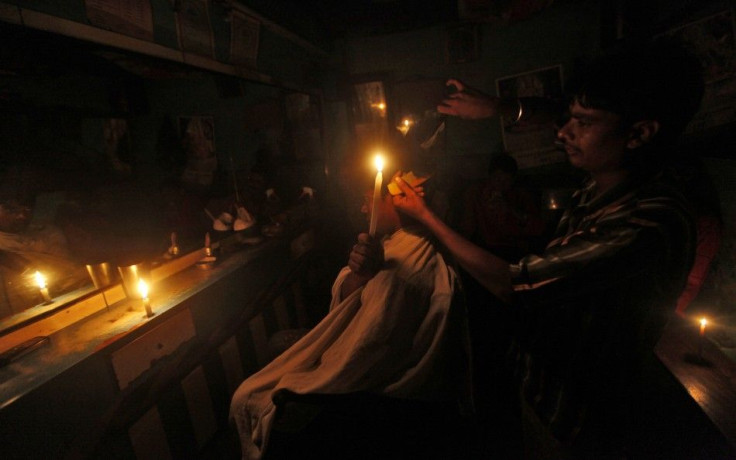India Power Restored: But Who Is To Blame For Two-Day Blackout?

While power has been fully restored across northern and eastern India, serious questions remain over who is ultimately responsible for the biggest electric blackout the world has ever witnessed and which threw the lives of more than 600 million people into chaos for two days.
A total of 20 Indian states were affected by the failures of the country’s northern, eastern and north-eastern electric grids, with the capital Delhi among the worst hit. Rail transport was paralyzed, hospitals had to rush to use back-up generators, roads became clogged with traffic jams, and water supplies were disrupted, among a multitude of other breakdowns.
“Many people had panicked on hearing rumors that the power cuts would last for another day, and had begun buying packaged drinking water supplies in several parts of the country,” wrote BBC correspondent Soutik Biswas.
The federal government has blamed the blackouts on states taking too much power from the national grids, but critics point out that the grids themselves are antiquated and need to be upgraded at great cost. Meanwhile, state officials in Uttar Pradesh, Punjab and Haryana are blaming each other (and the government in Delhi) for the catastrophe.
"Every state draws far more than their specified quotas from the power grid. We will penalize those provinces that transgress these limits and if they persist their power supplies would be cut," Sushil Kumar Shinde, the Indian power minister, warned at a news conference in Delhi.
Now, the media and public are taking stock of the two-day disaster, with many questioning the viability of the country’s aging and inadequate energy infrastructure and the very notion of India as a global economic super-power.
"I can understand this happening once in a while but how can one allow such a thing to happen two days in a row?,” a Delhi resident named Anu Chopra told BBC.
"It just shows our infrastructure is in a complete mess. There is no transparency and no accountability whatsoever."
The Indian press has vilified the government for what it sees as a gross violation of its public duties to provide services to the people.
In an editorial entitled “India Interrupted,” The Times of India warned: “Lack of power holds back India's industrial take-off, and prevents it from making the kind of strides in reducing poverty that China or East Asia have. In addition, cataclysmic failures due to a weak distribution system throw ordinary life out of gear. Unless we can summon up the political will to make systemic changes, this is going to happen again.”
The Times also said the country’s entire energy infrastructure and bureaucracy needs to be completely revamped.
“Much can be done to boost India's power capacity,” the Times declared.
“Throw open the generation, transmission and distribution of power to more competition, which introduces efficiency. Often insufficient coal supply for thermal power plants is the problem. Coal India's monopoly over mining coal needs to be broken, which will bring efficiency in the production of coal as well. Power theft, which receives political patronage but disincentivizes the huge investments needed by the power sector, must be curbed. Can a national consensus be created on these issues, or do we require more grid collapses for that to happen?”
Meanwhile, the Economic Times said the blackout ends any illusions about India as a modern superpower and principally blamed political corruption for the outage.
“We need to slap deterrent penal charges on power utilities for grid indiscipline,” the paper fumed.
“The perpetrators and the powers that be clearly need to pay for the wider disruption that follows a grid collapse. We do have an exhaustive electricity grid code in place, and it needs to be adhered to both in letter and spirit.”
Rob Crilly and Rahul Bedi, writing in The Daily Telegraph newspaper of Britain, lamented that the two-day imbroglio was “deeply embarrassing for the nuclear-armed nation, that considers itself the emerging superpower in the democratic world.“
Prime Minister Manmohan Singh, already battered by corruption scandals in his administration and by the perception that the country’s economy is declining, will surely be brought to task over this latest incident.
“This looks even worse than it would normally because there’s an impression that India’s economy is falling apart right now,” Surjit Singh Bhalla, chairman of New Delhi- based Oxus Fund Management, told Bloomberg.
“In any normal time, people may say that accidents happen. Right now everyone is looking at Singh to see what, if anything, he is going to do to fix the problem.”
© Copyright IBTimes 2025. All rights reserved.





















